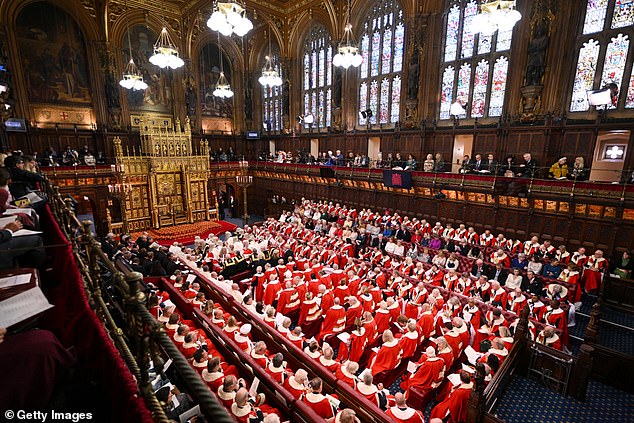Three days after Labour‘s landslide victory in the General Election a year ago, when everyone was hailing Keir Starmer and his message of ‘Change’, I wrote an article in this newspaper saying that within 12 months, ‘People will quickly recognise Starmer as a vacillating bloviator’.
Today – after having been proved comprehensively correct – I would like to make another prediction against the tide of present commentariat opinion.
Whereas most political pundits now argue that, ‘there is no such thing as Starmerism’ and, as The Times put it recently, ‘a prime minister needs a guiding social and moral philosophy’, in fact, in one year’s time, we will all see that Starmer does indeed have such a philosophy and there is such a thing as Starmerism.
He has deliberately tried to keep it hidden because his guiding philosophy has failed so often in the past, but it is simply the age-old Labour Party agenda dressed up for the modern age: the politics of envy. The desire to set class against class in Britain, in the hope of dividing and ruling.
While he talks about trying to bring people together, in fact, Keir Starmer’s policies are ever more obviously about trying to stoke up inter-class hatred. What makes this so obvious is the unrelentingly ideological way that he has been going about it, and, after another year of it, it will be obvious to all.
Take the plan to slap VAT on private school fees. Starmer knows that only 7 per cent of children in this country go to independent schools, and that on the Left there is a phobia about non-state education that amounts to a foaming loathing.
The freedom to educate one’s children in the way that best suits them if you are lucky or self-sacrificial enough to afford it strikes at the very heart of socialist philosophy.
So the Starmer Government devised a plan to make Britain the only country in Europe – indeed one of the only ones in the world – to tax children’s education, by making it 20 per cent more expensive for parents to educate their children privately.

While he talks about trying to bring people together, in fact, Keir Starmer’s policies are ever more obviously about trying to stoke up inter-class hatred

Starmer’s vicious attack on the inheritance tax (IHT) provisions on farmers has always had a naked class impetus to it
What’s more, they did this in the cruellest way possible, in the middle of the school year, and for ideological reasons they made no exceptions whatsoever – for the children of our soldiers and diplomats serving our country abroad, for example, or even for children with special needs.
They were warned this tax-grab would backfire. They were told it would mean that struggling independent schools would be forced to close, and that therefore the children in them would have to enter the state sector, with all the costs that would impose on local authorities and, ultimately, the taxpayer.
They were warned that the money they would raise would not be anything like the amount that they promised the electorate, because, of course, fewer parents would be paying VAT once they withdrew their children.
They were further warned that ground staff, cleaning staff, catering staff and so on would be made unemployed as schools closed, and would also become a burden on the taxpayer.
Sure enough, in 27 local authorities, oversubscribed state schools found they had no room for the sudden influx of children whose parents could not afford the VAT hike.
I know Labour were warned, because I warned them, along with dozens of fellow peers, in the House of Lords debates on the matter, in which some of the Party’s peers made their ideological hostility to the survival of any public schools very clear.
All that Starmer’s ministers did on hearing these clear, detailed, costed – and ultimately vindicated – warnings was the political equivalent of putting their fingers in their ears and loudly singing la-la-la, because they didn’t care about any of that, so long as their ideological opposition to private education was assuaged, however much pressure it takes off the over-stretched state sector.
To add insult to injury, Bridget Phillipson the Education Secretary told Sky News that any closures were not down to her, but instead to parental choice, telling Sky News: ‘Private schools are businesses that can make choices about how they manage their budgets, the level of fees that they charge, and, ultimately, it’s about how attractive they are to families in terms of the numbers of students that are sent there’.
She therefore ignored the fact that it was actually her who was hitting those businesses with a 20 per cent levy, and even tried to argue that she was closing a ‘tax break’, rather than imposing a new, class-based duty.
Similarly, Starmer’s vicious attack on the inheritance tax (IHT) provisions on farmers has always had a naked class impetus to it. Farmers have historically tended to vote Tory and be suspicious of socialist legislation. They were proved correct when they and other rural tradespeople were among the first to suffer from the inheritance tax raid on agricultural land.
From April 2026, farms worth more than £1 million will be subject to a 20 per cent levy under changes announced in Rachel Reeves’ now notorious Autumn 2024 Budget.
Once again, ministers were warned that farmers might pull the plug on investments such as barns and machinery in order to prepare for the new imposition. They were told of the widespread consequences for the rural economy, with machinery dealers and other associated trades going out of business.
The National Farmers’ Union warned that a big IHT bill would mean farms splitting up and ‘the demise of the structure of the countryside’.
It produced the figures from the Government’s own Department for the Environment, Food & Rural Affairs that showed that as many as two-thirds of farms would be affected, while ministers claimed it would be less than a quarter.
Ministers were warned that large tax bills would make many family farms, which are asset-rich but cash-poor, simply unviable.
They must have heard it, as, day after day, tractors blared their horns outside the Palace of Westminster drawing attention to the fact. In the committee rooms of the House of Lords we could hardly hear ourselves speak, but we did not mind because it meant ministers would be hearing the message too. Instead, their fingers stayed in their ears and la-la-la was sung higher.
In a not-unrelated class-based move, landowners were told that the Government was going to scrap the cut-off date for ramblers to register rights of way in Britain – yet another attack on the countryside and farmers.
This country already has 140,000 miles of public rights of way and 3.5 million acres of public-access land in England and Wales alone. Forcing even more upon farmers was a backward step – and yet another attack on their way of life.
The chorus of voices that was raised to point out that Starmer’s attack on non-domiciled taxpayers would backfire spectacularly was similarly ignored, with entirely predictable consequences.
Socialists have always disliked and distrusted the rich, the risk-takers, entrepreneurs, financially numerate and successful in society, and always will.
So when they had a chance to abolish non-dom status, thinking that thereby they could tax people on their global rather than just their British earnings, they leapt at the chance, even though that hadn’t been done to non-doms for two centuries.
The, once again, entirely predictable result was that ministers got their sums wrong, because, as with independent school parents and the farmers, people changed their behaviour when the Government changed the tax situation.
A record number of billionaires and millionaires left Britain – and Labour’s tax plans exiled international investors and soon started seriously damaging the economy.
Driving out the golden geese such as Lakshmi Mittal – the steel tycoon said earlier this year he is considering leaving – meant that instead of getting millions in tax on British earnings, the Treasury got nothing on any of it.
Britain lost a net 10,800 millionaires to migration in 2024, a 157 per cent increase on 2023, thereby losing us more wealthy residents than any other country except China.
The Treasury knows perfectly well that the top 10 per cent of taxpayers pay 60 per cent of all income tax in this country, and the share of income tax revenue contributed by the top 1 per cent is 29 per cent.
So it is insane to chase out the successful entrepreneurs, and only makes sense if you are an ideological socialist who wants to harness the politics of envy, despite it costing the economy more than £10 billion a year.
Perhaps the most glaring aspect of Starmerism’s ideological class resentment is in its treatment of the hereditary element of the House of Lords.

Starmer knows that only 7 per cent of children in this country go to independent schools, and that on the Left there is a phobia about non-state education that amounts to a foaming loathing
Many of the 92 hereditary peers forewent lucrative careers outside Parliament to dedicate themselves to public service in politics, and the hereditaries make up a greater proportion of those whose speak, vote, sit on select committees and do the job of Deputy Speaker than the (equally unelected) life peers who are appointed by prime ministers.
The hereditaries tend to undertake their duties out of an old-fashioned, but thankfully still functioning, sense of noblesse oblige, the obligation to redeem their privileges in life through working for the national good.
Yet because they mostly – though not exclusively – hail from the upper classes, they are natural targets of the Labour Party, which has been calling for their expulsion from the upper chamber for more than a century.
Finally, in 2024, Labour got its chance to enact the legislation, which has been done in an ideological way, albeit within the normal gentlemanly behaviour that is customary in the House of Lords.
Instead of allowing the peerage to die out naturally, all hereditary peers are going to be summarily expelled at the end of this session. Instead of allowing public servants such as the Earl Marshal and Lord Great Chamberlain, who carry out important tasks on state occasions, to remain, every single one will go.
Life peerages have not been offered even to the most distinguished former ministers, such as Earl Howe who has served on the front bench continuously since 1992. The most harsh and ideologically socialist form of the abolition has been pursued, with no negotiation offered or amendments to the legislation considered, let alone accepted.
It is, of course, Labour’s democratic right to pursue the most aggressive option since it was in their manifesto. But the manner of their doing it sheds much light on the Starmer Government and what truly actuates it.
For if you put Labour’s treatment of privately educated children, farmers, landowners, entrepreneurs and hereditary peers together, it is impossible not to see a pattern emerging of ideological envy politics and class resentment.
It is not true that there is no such thing as Starmerism; you only have to connect the dots.
Envy has been known since Ancient times as ‘the most barren of all the vices’, because there is nothing uplifting about it whatever. It atomises and balkanises our already fractured society, but none of that matters to Starmer and his acolytes, because it still makes for a potent rallying cry on the Left.
Lord Roberts of Belgravia is a Conservative peer and historian.












